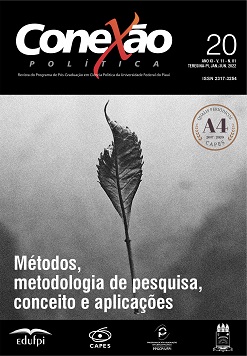RAZÕES E POSSIBILIDADES INFERENCIAIS PARA ESTUDOS DE CASO
DOI:
https://doi.org/10.26694/2317-3254.rcp.v11i1.5449Palavras-chave:
estudo de caso, metodologia política, Ciência Política, Políticas Públicas, Política ComparadaResumo
Este trabalho discute razões fortes para justificar o status inferencial dos estudos de caso na Ciência Política, de modo geral, e, em particular, na análise de Políticas Públicas. Casos podem ser justificados a partir de quatro razões: equifina-lidade; heterogeneidade causal; contrafactuais; e, por fim, a análise de mecanismos/ sequências causais, que são formas de lidar com o “Problema da Complexidade”, usual na análise de Políticas Públicas. O artigo oferece uma tipologia original — o Modelo KSTC — que se volta para entender os quatro elementos constitutivos dos estudos de caso conquanto desenhos de pesquisa: a Contingência (K), Substân-cia (S), Teoria (T) e Causação (C). A qualidade inferencial depende fortemente de como esses elementos são configurados, articulados nos desenhos de pesquisa, e tal combinação é decisiva. Na parte final, é sugerida a existência de um critério efetivo para a confecção de casos compreendidos conquanto desenhos de pesquisa.




